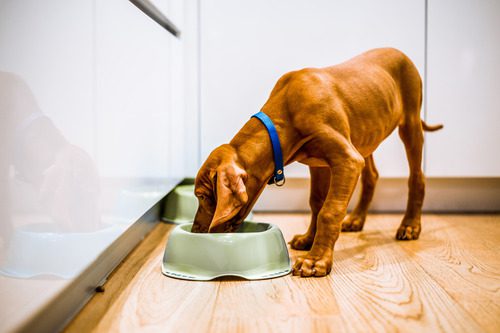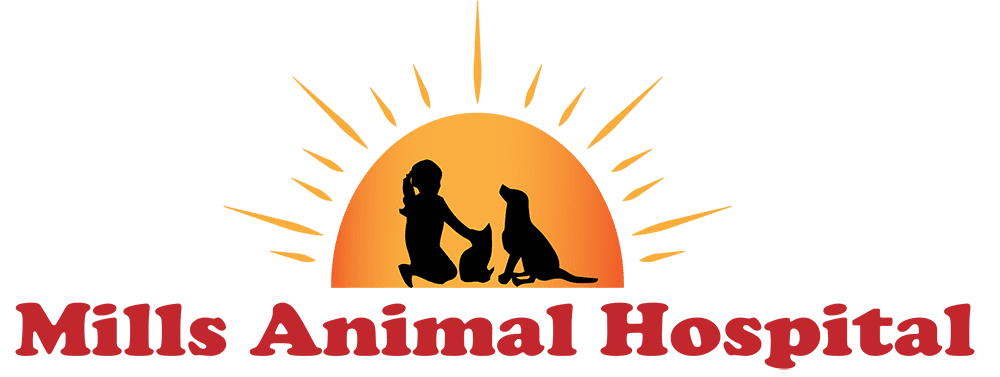Most dogs rush to their water bowl several times a day—especially after a long walk, play session, or meal. But what if your dog is eating normally and yet not showing interest in drinking water? If you’ve recently found yourself wondering, “Why is my dog not drinking water but eating?” It can be confusing. It’s important to know that changes in hydration habits should not be ignored. There are several possible reasons behind this behavior, and while some may be situational or short-term, others could suggest an underlying medical concern that needs attention. Here’s a detailed look into why your dog might be skipping the water bowl and what you should consider as the next step.

What It Means When Your Dog Eats but Refuses to Drink
If you’re asking, “Why is my dog not drinking water but eating?” the first step is to evaluate how long the behavior has been going on and whether your dog seems otherwise healthy. A dog who eats normally but avoids water for a day may be reacting to a temporary change. However, if this behavior lasts longer or occurs frequently, it’s worth investigating further.
Dogs Sometimes Get Water from Food
Some dogs may get a good portion of their hydration from the food they eat—especially if they’re on a wet or raw diet. Canned food contains significantly more moisture than dry kibble, which might reduce your dog’s need to visit the water bowl. In these cases, the behavior might not indicate a problem, but it’s still important to monitor overall hydration.
Environmental Changes Can Affect Water Intake
Dogs are sensitive to changes in their environment. A recent move, new people or pets in the household, a change in daily routine, or even a shift in weather can influence how much water your dog drinks. For example, some dogs may drink less in cooler months or when they’re less physically active.
Behavioral Reasons
Some dogs are picky about their water. If the bowl is dirty, placed in a stressful location, or filled with unfamiliar-tasting water (such as filtered vs. tap), your dog may avoid it. It’s helpful to pay attention to whether your dog avoids the water bowl entirely or just drinks less than usual.
Signs That Your Dog May Be Dehydrated
Even if your dog is eating, reduced water intake can lead to dehydration—especially in warm climates like Marietta, GA. It’s helpful to know the signs, especially if you’re concerned and wondering, “Why is my dog not drinking water but eating?” Look out for the following:
- Dry nose or gums
- Lethargy or weakness
- Sunken eyes
- Loss of skin elasticity
- Panting more than usual
- Thick saliva
You can gently pinch the skin at the back of your dog’s neck—if it doesn’t snap back into place quickly, your dog may be dehydrated. While this test isn’t definitive, it can indicate that something may be off.
Could an Underlying Condition Be Affecting Hydration?
If your dog consistently eats but doesn’t drink water, a medical condition might be contributing to the behavior. In these cases, hydration issues often go hand in hand with other symptoms that require veterinary attention. While it’s not possible to diagnose anything at home, here are a few issues that may explain why your dog is eating but not drinking:
- Mouth Pain or Dental Problems: If it hurts to drink, your dog might avoid it. Tooth pain, gingivitis, or oral injuries can cause discomfort during swallowing.
- Urinary Tract Issues: Some conditions that affect the bladder or kidneys can interfere with thirst cues.
- Gastrointestinal Discomfort: Nausea, indigestion, or internal discomfort might not deter your dog from eating but could make drinking feel unpleasant.
- Infections or Illnesses: Certain infections may lead to changes in drinking habits, even if your dog continues to eat.
- Medication Side Effects: If your dog recently started a new medication, changes in appetite or thirst could be related.
When Should You Contact Your Veterinarian?
You know your dog best. If something feels off—even if your dog is still eating—trust your instincts. Dogs are masters at hiding discomfort, and small changes in behavior are often the earliest clues that something isn’t right. If your dog hasn’t been drinking water for more than 24 hours, or if you notice signs of dehydration, lethargy, vomiting, or unusual behavior, please call Mills Animal Hospital at (770) 988-6698. Prompt attention can help prevent more serious problems from developing.
What You Can Observe at Home Before Your Appointment
While you should never delay seeking veterinary care, there are a few things you can observe at home that may be helpful during your visit.
Helpful Details to Share with Your Vet
- How long has the reduced water intake lasted?
- Has there been a recent diet change?
- Is your dog acting normally otherwise?
- Any new stressors, such as travel, guests, or routine changes?
- Is the water bowl in a new location?
- Is your dog urinating and defecating normally?
These details can give your veterinarian a clearer picture and help guide next steps.
Hydration Habits Can Shift with Age and Activity
Dogs don’t always maintain the same water-drinking habits throughout life. Puppies, active adults, and seniors all have different hydration needs. If you’re wondering, “Why is my dog not drinking water but eating?” and your dog has recently entered a new life stage, this may be a factor.
Older Dogs May Drink Less
Senior dogs often experience subtle changes in their metabolism, kidney function, and overall thirst. They may also become more sensitive to changes in temperature or household activity levels. If you live in Marietta and care for a senior dog, regular wellness exams help catch early signs of any health concerns.
Less Activity, Less Thirst
On days when your dog has been less active, water intake may dip slightly. This is normal in many cases, but again, long-lasting patterns should be discussed with your vet.
Addressing Your Concerns About Hydration
No one wants to worry about their dog’s health. But if you’ve been asking, “Why is my dog not drinking water but eating?” there’s a reason it’s caught your attention. Dogs rely on hydration just as much as people do, and even if your dog continues to eat normally, a decrease in water intake may point to something worth checking out. It’s always better to have answers than to wonder whether something serious might be going on. If you’re located in Marietta or the surrounding area and have noticed a change in your dog’s drinking habits, call Mills Animal Hospital at (770) 988-6698 to schedule an appointment.
